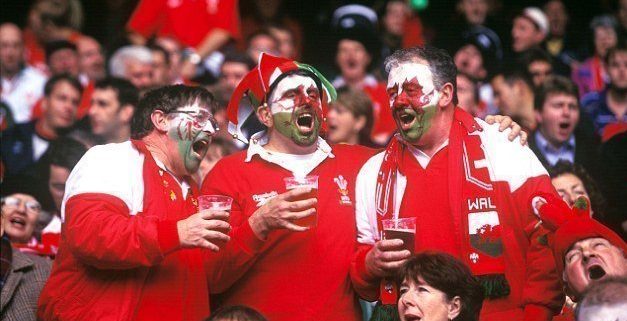My grandfather, a hard-working Welsh-speaking market gardener from west Wales, used to tell me stories of curious journeys he would take to just to have a drink in the pub on a Sunday. In the 1960s, it wasn’t sporting or political colours that divided parts of Wales, but whether you were ‘wet’ or ‘dry’. He would tell me that he would cross the Loughor Bridge, a physical and metaphorical border that took you to Glamorgan, just to get a drink on the Sabbath.
For anyone unaware of Welsh history, this might reaffirm your views that we really are a peculiar people. But my grandfather’s story has its origins not only in local culture or customs, but the most important legislation in the history of our nation: the Sunday Closing Act of 1881. It was the first parliamentary Act to deal specifically with Wales since the Act of the Union over three centuries earlier, banning drinking in pubs on a Sunday. It was, in short, a victory for Welsh nationhood and Liberals like David Lloyd George who were champions of the Nonconformist and Temperance movement.
By the 1960s, Wales had changed dramatically. Welsh Liberalism had started its steady decline after the First World War, and chapel-going became less important to daily life. As my grandfather’s recollections suggest, from the early 1960s different districts across Wales were opting to go ‘wet’ in referenda held every seven years. Llanelli, my hometown, waited a bit longer to abandon their ‘dry’ sympathies. Dwyfor, now part of Gwynedd, north Wales, only overturned its ban in 1996. Wales is now well and truly wet in every corner of the nation.
Well, that is, until this week… The Welsh First Minister, Mark Drakeford, announced that from Friday pubs, restaurants and cafes will be banned from selling alcohol and won’t be able to open to customers after six o’clock in the evening. Aside from the devastating impact this will have on the hospitality industry, and raising further questions over the success of the Welsh government’s ‘firebreak’ lockdown last month, it is perhaps the most consequential political act to deal with alcohol in Wales since the late nineteenth century.
Of course, we must refrain from drawing too many lessons from the past and applying them to present day situations. The Sunday Closing Act and Drakeford’s ‘Booze Ban’ are different — in purpose and practice. But there are lessons to be learned on the former’s impact, or rather, the lack of it. Despite pubs closing on Sunday for several decades across Wales, the Welsh simply went elsewhere — to unregulated venues and working men’s and rugby clubs. Loopholes were there to be exploited, and they were.
Perhaps that’s why the historian Russell Davies once wrote that the “real opiate of the Welsh was alcohol”. This is by no means to underplay the drinking problem that Britain (and Wales) has, and the devastating effects it can have on people’s lives, but most importantly it is a warning from history for the Welsh government. There was no national emergency in 1881 — unless you spoke to the leaders of the temperance movement — so a severe ban now on people’s freedom is only likely to spark dissent and anger.
Perhaps this week’s ban will not have impacts that will reverberate through the decades but it will certainly ruin our Nadolig Llawen. I never thought I’d find it as difficult as my grandfather to get a pint, but that’s this pandemic for you.











Join the discussion
Join like minded readers that support our journalism by becoming a paid subscriber
To join the discussion in the comments, become a paid subscriber.
Join like minded readers that support our journalism, read unlimited articles and enjoy other subscriber-only benefits.
Subscribe